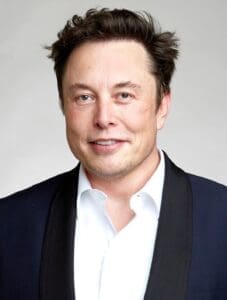
Tesla Commits $16.5 Billion to Samsung for Advanced Chip Supply
Tesla has entered into a $16.5 billion supply agreement with Samsung Electronics for the production of autonomous driving and AI chips. The multi-year deal will rely on Samsung’s 4-nanometer manufacturing process and will utilize fabrication facilities in both Taylor, Texas, and Hwaseong, South Korea. The chips are intended to power Tesla’s Full Self-Driving (FSD) systems and support its broader AI infrastructure.
Production is scheduled to begin in late 2025 or early 2026, once Samsung’s Texas foundry reaches operational readiness. That site represents a major investment in domestic semiconductor production and is expected to play a key role in supplying Tesla’s future compute needs.
Strategic Objectives
For Tesla, the agreement secures a dedicated pipeline of high-performance chips designed specifically for its vehicles and AI clusters. It reflects the company’s continuing strategy of internalizing key technologies and controlling supply chain inputs. With autonomous systems becoming increasingly compute-intensive, the chip platform is a fundamental part of Tesla’s product roadmap.
The chips covered in this deal will serve two core purposes: they will operate as the brains of Tesla’s in-vehicle Full Self-Driving systems, and they will be used in back-end AI training systems, such as the Dojo supercomputer and related infrastructure. Both use cases demand high throughput, low latency, and automotive-grade reliability.
Supply Chain and Manufacturing
Samsung will manufacture the chips on its 4nm process, which is designed for power-efficient, high-density applications. While Samsung trails TSMC in foundry market share, it has been investing heavily in next-generation manufacturing capacity and has worked to diversify its customer base beyond mobile devices.
The Taylor, Texas facility—Samsung’s largest U.S. investment to date—will be critical in this deal. Tesla’s preference for a U.S.-based manufacturing node aligns with growing interest in reshoring high-tech production and reducing supply chain exposure to geopolitical risks.
Commercial Terms
The deal is valued at $16.5 billion and will be spread over multiple years. Tesla and Samsung have not disclosed the exact duration or the volume commitments by year. The agreement is non-exclusive, meaning Tesla is likely to continue working with other suppliers, including TSMC, as needed.
However, the scale of this deal suggests Samsung will become a primary partner for Tesla’s compute hardware. It is a significant order for Samsung’s foundry business, which has been competing for large-scale customers outside of the mobile and consumer electronics segments.
Industry Implications
This agreement reflects a broader trend: automakers are moving beyond just buying parts—they are designing, specifying, and securing custom silicon tailored to their future product lines. The line between a car company and a technology firm continues to blur, particularly for those pursuing autonomous driving and AI development at scale.
For Samsung, the deal is a step forward in its effort to capture more of the high-performance compute market, particularly in sectors like automotive and data center AI. It also strengthens its U.S. customer base and justifies ongoing investment in American manufacturing capacity.
Summary
Tesla has committed $16.5 billion to ensure a long-term supply of custom AI and FSD chips. Samsung will manufacture these chips using its 4nm process in both South Korea and the United States. The deal strengthens Tesla’s supply chain, supports Samsung’s expansion in the foundry sector, and underscores the growing importance of semiconductors in the future of transportation.
















